
Community Partners Doing Good
Cape Cod Life / November/December 2022 / People & Businesses
Writer: Cape Cod Life Publications
Community Partners Doing Good

Cape Cod Life / November/December 2022 / People & Businesses
Writer: Cape Cod Life Publications
Maybe it is because the dark comes a bit earlier and stays a bit longer this time of year. Maybe it is the chill in the brisk winds that threatens to find a way under our coats. Or perhaps it is the warmth we experience when we spend time together with those we love. Whatever the triggers, this time of year is the perfect time to think of those less fortunate.
Every human struggles at some level, with something in his/her life. Understanding and acknowledging that challenge in others is where we have an opportunity to rise up and meet the opportunity of empathy and charity.

In the following pages we offer a brief introduction to scores of nonprofits. Some may be familiar, perhaps some are a new introduction, however well you are acquainted, we hope you will take a moment this season to discover some praise-worthy work being done by countless across the region.
One of our favorite people who greets every day ready to see how she can have a positive impact on the causes she holds near and dear, is Marieluise Hutchinson. As the months flip away on the calendar and the last leaves are barely holding on to their branches, the anticipation of the festive season is heralded with the latest holiday card created by this local master painter. Each year, Hutchinson creates holiday cards whose proceeds benefit local nonprofits cherished by her generous heart. The anticipation for each year’s card is fueled by the curiosity surrounding the tiniest of details imagined by Hutchinson’s inquisitive and playful spirit. Historic farmhouses, and often their hard-working barns, laden with a heavy drape of New England snow, are lit from the life within that surrounds the warm hearth—these are the images one expects with each year’s collectible card. Look closely and a bird might be perched on an old barrel in a barn, or a young child might be trudging through deep snow with his sled to meet his neighbor for a few runs before the dusk gives way to the dark.
This year’s card, like last year’s, will benefit the Cape and Islands Veterans Outreach Center. Cards can be purchased at shop.capecodlife.com. *SOLD OUT*
Please do what you can, give what you can; time, money, and goods to support the people committed to supporting the mission of caring.
Dogs for Better
Harwich Conservation Trust
Wild Care
Buzzards Bay Coalition
Cape Kid Meals
The Family Table Collaborative
Food Pantries
Cape Cod Challenger Green Fertilizer
Summer of Sass
Cape Abilities
Sharing Kindness
Independence House
Vineyard House
Cape Cod Theatre Company/Harwich Junior Theatre
African American Heritage Trail
Maria Mitchell Association
Community Foundation for Nantucket
Annual Charter Cup Fishing Tournament
Community Health Care of Cape Cod
Helping Hands
Dogs For Better Lives
Oregon-based nonprofit Dogs For Better Lives has expanded to East Falmouth with the goal of continuing their mission to change lives by providing those in need with service dogs.
“We train Hearing Assistance Dogs, Facility Dogs, and Autism Assistance Dogs,” explains Development Manager Danielle Kempe. “Autism Assistance Dogs serve children aged 4-8 and their families, and are typically purpose-bred Labrador Retrievers due to size and temperament needs. Hearing assistance dogs can be any breed or size—they just have to have an aptitude for alerting their handlers to sounds.”
The nonprofit is one of the few assistance dog organizations that works with rescue dogs. “Our trainers visit shelters and seek out dogs who could be a candidate for our programs,” says Kempe. “We also have our own breeding program and with other dog organizations. Basically, we try
to find the best dogs for the job, and they can come from a variety of places.”

And when the organization does have puppies, that’s when some of their amazing volunteer opportunities become available. “We have Puppy Raiser volunteers who work with our future service dogs until they reach 16 months of age,” she explains. “During their time raising, they attend basic obedience classes with their puppies and expose the puppies to new environments. This helps us build a solid foundation for future assistance dogs.” When the puppies are 16 months old, they return to one of their campuses for professional training. “On the Cape, we found that a lot of empty nesters are the ones who want to take on that short-term commitment,” says Kempe. “We find that a lot of the people that get involved with the organization have a connection to the cause.”
Occasionally, the nonprofit will partner with other service dog organizations as well. “When I first started with the organization we received some dogs from Guide Dogs for the Blind because they weren’t good candidates to become guide dogs. They ended up being perfect for our programs, and we were able to train them to be placed with our clients.” Dogs for Better Lives also ensures that their dogs who don’t make it as a service dog are adopted into loving homes.
All of the profits that are raised for the organization go straight into training and placing their dogs. “All of our dogs are offered to our clients at zero cost, thanks to donor support. We want to eliminate any additional financial burden of acquiring a service dog for someone in need,” affirms Kempe. “At the end of the day, for both autism and hearing dogs, it is about communication—there is something getting in the way of being able to communicate with other people and the dogs bridge the gap.” She shares, “One of our hearing dog clients described it as, ‘Being in the Wizard of Oz, where everything went from black and white to technicolor, but unlike Dorothy, I don’t want
to go back.’”
For more information, visit dogsforbetterlives.org. To get involved, contact Danielle Kempe at Danielle@dogsforbetterlives.org.
Preserving Beauty
Harwich Conservation Trust
The change of seasons on this fragile spit can be more subtle than the eruption of color found farther north. The glisten on the greens in our woodland landscapes starts to dull , waving marsh grasses turn golden, then a rich winter brown.

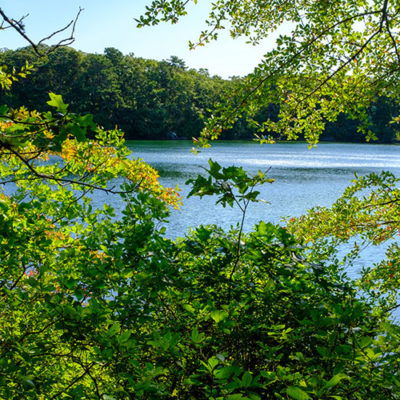

Cradled by waters made warm by summer sun, fall and early winter call us outdoors. The crowds have gone, and Cape Codders are blessed by being able to wander through forests, along shores, across boardwalks that traverse watery landscapes.
Generations of Cape Codders, people generous with their money and time, have given us all the gift of open spaces – space to seek peace and solitude, beauty and inspiration.
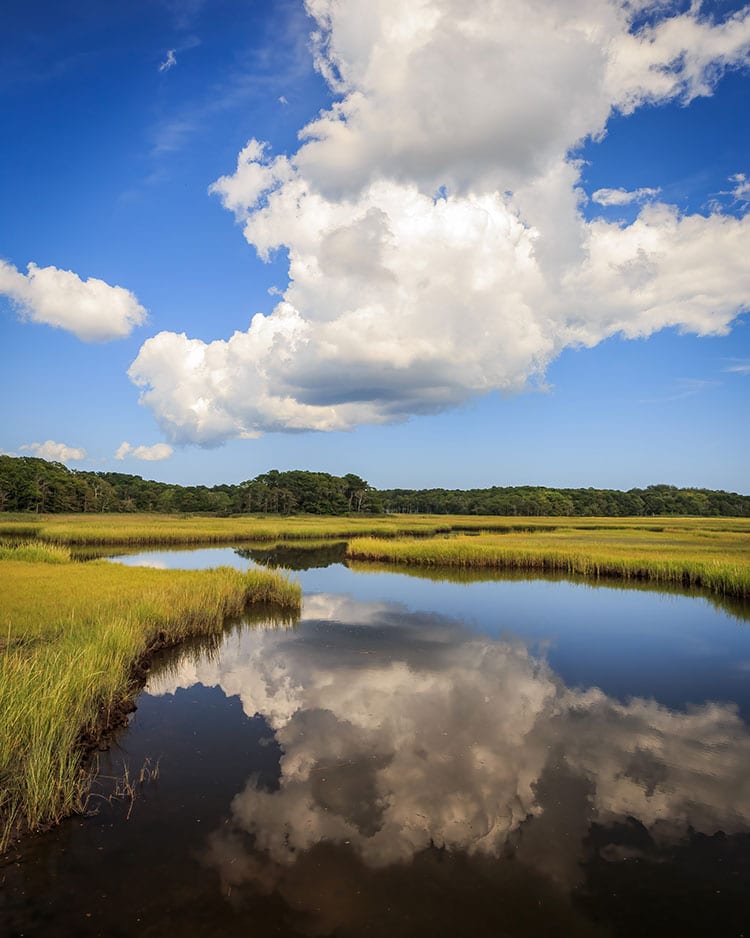
In its home town, the Harwich Conservation Trust exemplifies the work of town trusts across the Cape. Where HCT particularly shines, however, is in its unique partnerships with residents by embracing unorthodox approaches to what it means to support a nonprofit.
“Folks who support Harwich Conservation Trust truly are making a lasting, local difference for land, water, wildlife and people,” says HCT’s director Michael Lach. “When someone donates or helps with our many volunteer projects, they automatically receive our event announcements through our HCT eNews emails that offer opportunities to experience the outdoors in fun, new ways. By learning about the natural world around us on guided walks, we find that folks want to become even more involved with our land-saving and land stewardship efforts.”
Volunteerism is one of the most important ways to help support HCT, Lach says, adding with a smile that, “we make it easy to lend a hand.” HCT’s website (www.harwichconservationtrust.org) has a volunteer link where potential supporters are asked to fill out a questionnaire about their background and interests. “We follow up with an in-person conversation to find the best volunteer fit whether that’s trimming trails, helping with an event, taking photos, checking on bird nestboxes, counting herring, or a variety of other meaningful activities,” Lach explains, noting that connecting people with their personal interests is a key aspect to the success of HCT’s volunteer work.
Other people have made offerings that are completely unique to their talents, experiences, or connections to the town. For example, the Shinkwin family donated a family home to the trust. That program, Homes for Habitat, generates a number of opportunities for the trust: the house can be rented out to generate income, it can house HCT staff or interns, it can be “undeveloped,” or it can be sold for proceeds that can preserve other open space. Other residents, such as Patrick Otton, have created a reserved life estate, which means he will continue to live in his home until he passes away, at which point HCT will receive his property. Patti Smith, a former director on the trust’s board, made crafting corks into trivets and is selling them as a way to raise money for HCT – the endeavor generated more than she ever anticipated.
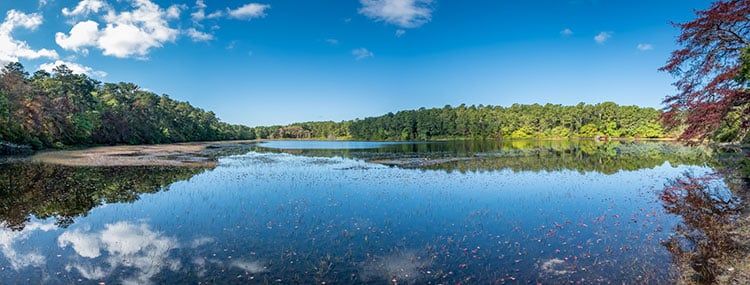
“People who spend time on the Cape recognize the defining attraction is the natural beauty that holds us here and draws countless visitors,” Lach says. “It’s preserving local lands that protect and enhance that natural beauty. Folks have an opportunity to create their own land-saving legacy by including HCT in their will, also known as a bequest.”
Learn more by visiting this webpage: harwichconservationtrust.org/support/planned-giving.
Wild Care
It has happened to all of us; we are driving along and see an injured turtle or a fallen nest of baby birds on the side of the road, or we look out the window of our home into the backyard and an adorable squirrel has its head stuck somewhere it shouldn’t. What to do, where to turn? These are the questions that immediately present in our efforts to help.
On Cape Cod, the answer is simple: Wild Care. Located in Eastham, this organization’s mission is to treat injured, ill and orphaned native species of wildlife, regardless of the rescuer’s ability to offer a donation. Additionally, they provide outreach education to prevent future casualties, all while encouraging community involvement in conservation through the process of volunteerism.
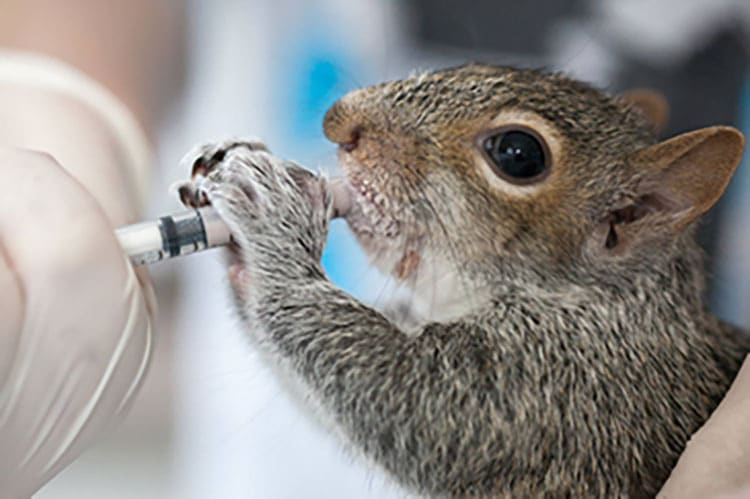
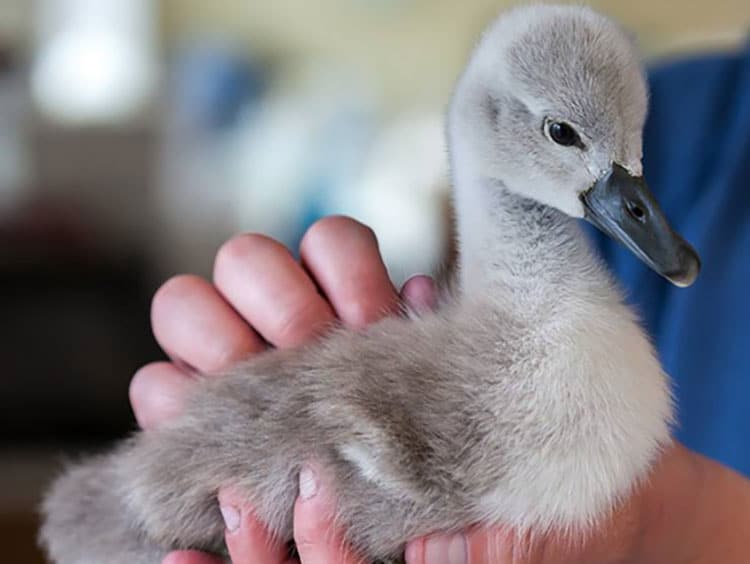
Executive Director Stephanie Ellis says in the past year the center, whose focus is on treating small animals, especially songbirds, has taken in 1,800 animals rescued by local individuals. As their 30th anniversary approaches, the next fundraising chapter calls for a second building dedicated to education and animal cleaning, with ground-breaking scheduled for the winter of 2023.
The organization offers some very unique attributes. First, their phone is staffed and answered 9-5 every day of the week, quite an achievement given the over 10,000 calls received last year. Second, they make a concerted effort to provide fun, social and unique fundraising events including their annual baby shower where gifts are given from a registry. While the center is not open to the public due to the nature of their work, the baby shower is the one day per year where people can come and witness some of their amazing work.
For more information, including their fundraising Wish List, visit wildcarecapecod.org.
Buzzards Bay Coalition
Buzzards Bay has long been considered one of the more treasured and challenging bodies of water in the Northeast, if not beyond. When effects from pollution and growth became apparent in the mid 1980s, an organization dedicated to the restoration, protection, and sustainable use and enjoyment of the bay and its watershed was created. The membership-supported nonprofit works to improve the health of the Bay’s ecosystem through education, conservation, research, and advocacy.
A variety of resources and advocates work together in an interconnected process that begins with water quality monitoring, transitions to scientific analysis, and strives for governmental negotiation and legislation that result in clean-up and restoration. What that means for the everyday homeowner and general lover of the beautiful, natural world found along our shores is that the ability to enjoy the area around Buzzards Bay is now far more pleasant and far safer than it would have been without the Coalition’s involvement.
The organization recognizes the importance of key community engagement to not only fulfill their mission but also remain closely connected to the real effects, impact and pleasure found in our vital waterways.
For more information on how you can get involved, visit savebuzzardsbay.org.
Food Security
Cape Kid Meals
When members of Grace Church in East Dennis discovered that children from two local schools were facing hunger over the weekend, they didn’t wait a single moment. Working alongside the national organization called Blessings in a Backpack (BIB) and private donations, Cape Kid Meals was off and running. Since then, they have become their own nonprofit and are grateful to have learned from that initial model. The program, which began with two schools is now serving 28 across the Cape, helping over 750 students weekly.
Many families on Cape Cod deal with seasonal poverty as their jobs relate to tourism and therefore struggle to meet their family’s needs. “The Cape seasonal economy is a challenge for families who live here full time. When things shut down for the winter, this can create a hardship for families, more so than most of us realize. Parents have to decide if they are going to pay for their housing, keep the heat and lights on or get food; it is a gut wrenching decision that is faced by many families living here,” says Cape Kid Meals director Tammy Leone.

During the week, children of these families may receive reduced or free lunch at school, but on the weekend they are faced with the dire fact of not having enough to eat. “Over the years I have heard stories of children packing up half of their school provided lunch to take home and stories of students asking their peers to give them the food they were just about to throw away.” According to a survey conducted by the national organization No Kid Hungry, “Three quarters of educators see students who regularly come to school hungry. These educators described hungry students suffering from a host of problems: poor academic performance, inability to concentrate, lack of motivation, tiredness, behavioral problems and feeling sick.”
Leone and her beloved volunteers work with schools and assemble bags based on the number of children the school says either qualify for free or reduced lunches, or may need the extra nutrition at home. It is all completely confidential. Cape Kid Meals only know the school to which they must deliver, and the number of bags to prepare.
“In offering meal choices and snacks to our students on a weekly basis, Cape Kid Meals does more than simply provide food to families who need assistance. Students who utilize this service have commented they are happy to have the same types of snacks their friends have during the day and they like bringing the bags home because they are helping their families with dinner. Instead of wondering if there will be meals when they head home from school, they can focus on learning and still feel empowered by knowing members of the community care enough to ensure these supports are in place,” says Liz Carpenito, principal of Bournedale Elementary in Bourne.
The Family Table Collaborative
Setting the table seems a common enough task, even at times a laborious necessity. But, sitting down to a meal is about more than just preparing to enjoy some delicious food; it’s an act of love. Setting the table means gathering together family and loved ones, setting aside time to enjoy both each other, and, of course, some healthy eats. For many though, mealtimes come with anxiety over where the day’s food will come from.
Even before recent economic instabilities and other hardships, many households struggled with food insecurity. Factors ranging from age and ability to income and access affect many people’s capacity to put food on the table, and in recent years, issues of hunger have only been on the rise. On the Cape and Islands, the disparity between cost of living and (often seasonally-dependent) employment opportunities means that this beautiful region unfortunately suffers from hunger issues as surely as anywhere else. Thankfully, philanthropic organizations such as the Family Table Collaborative (FTC) have identified a fundamental need for better access to healthy food and have set out to fulfill that demand.

At the onset of the COVID-19 pandemic, the Family Table Collaborative stepped up in what they like to refer to as “Cape Cod’s Community Kitchen” to fill an urgent need to provide and distribute nutritious meals to those in need. When FTC was founded in 2020, it quickly became a household name for many across Cape Cod—both for those struggling to provide healthy meals for their families who looked to the FTC for much-needed help as well as for the communities of Cape Codders who rose to the occasion to support the organization’s life-saving initiative.
As a result of their immediate efforts in the face of unparalleled hardship, the FTC witnessed a real and lasting problem within the Cape and Islands community: food security. The challenges that those struggling with nutritional security face are ones that extend beyond the added difficulties of the pandemic; as the FTC puts it, nutritional security is a “full-time, year-round crisis.” With a re-invigorated sense of purpose, the FTC’s mission evolved beyond providing urgent pandemic relief to combatting hunger across the region as needed: full-time and year-round.
Today, the FTC operates out of their new brick and mortar location on Route 28 in Yarmouth. This new headquarters allows the FTC the space and opportunity to collaborate with local organizations, connect with the local community, and, most importantly, increase the number of meals they’re able to distribute. In fact, they project that their output of meals will increase three times over by 2024.
With just under 100,000 meals served since their founding in March of 2020, the FTC’s mission has progressed beyond simply distributing meals to also providing education and raising funds to become a independent nonprofit. To grow and preserve their organization, the FTC has implemented a number of initiatives, including hosting online and in-person classes and fundraising events; using their new facilities to provide kitchen space rental for local chefs as well as event space rental; housing a “Maker’s Market” featuring goods from local artisans, creatives, and entrepreneurs; and introducing a highly-anticipated café and tavern, Commons at Riverway, opening in November.
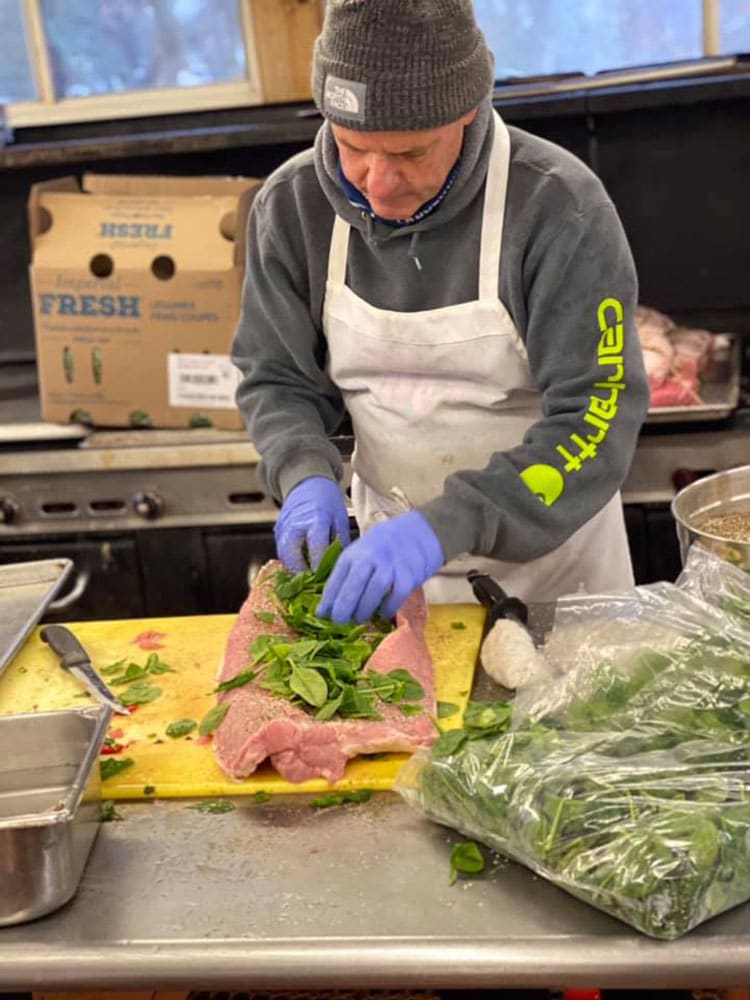
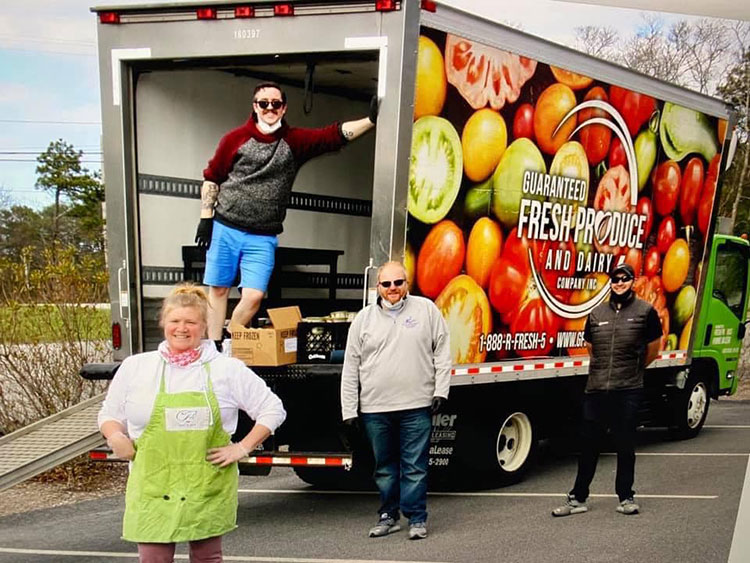
These enterprises allow the FTC to connect with their local community and to continuously educate about the need for food security across the region and the most productive ways in which to achieve it. Eventually, the FTC also hopes to use their expansive new property to build a sustainable community vegetable garden as well as affordable housing for employees. And, with a detailed plan in mind, an essential need to address, and a strong philanthropic spirit driving the FTC forward, their creative goals are sure to continue growing.
Of course, the FTC would likely not be seeing the rapid and well-deserved success it has had without engagement of an entire community, including many neighboring restaurants, organizations, and other philanthropic groups. Their mission is guided by the help of dedicated volunteers, the early and unwavering support of nearby businesses and residents, and the work of loyal employees passionate about combatting hunger across the Cape and Islands. All profits from their special events, space rentals, and market and café are used for running and sustaining the FTC, and supporters can also donate or sign up to volunteer via their website.
There’s one element to the FTC’s business model that rises to the top as a crucial aspect of their organization; as their tagline explains, “Love is always our secret ingredient.” What the Family Table Collaborative understands first and foremost is the meaning of setting a table, the love behind a healthy meal shared with others, and it is their mission to bring that love back into the equation for so many who have felt the extreme burdens of hunger.
The Family Table Collaborative | familytablecollaborative.org | 1338 Route 28, Yarmouth
Food Pantries
Across the Cape organizations are diligently trying to bridge the gap for the food-insecure population. Below is a list of hardworking groups who could always use some help, whether it be financial, a commitment of time or a donation of products.
HYANNIS
AIDS Support Group of Cape Cod
Calvary Baptist Church Pantry Kitchen/Pantry
Temporary Meal program served M W F 5:30 to 6:30 at Faith Assembly of God Church, 154 Bearses Way
Cape Cod and Islands Veterans Outreach
247 Stevens Street/508-778-1590
Food pantry (only via Drive-up) at the following locations:
Hyannis – Thursday 9-1 PM & 5-7 PM at 247 Stevens Street
Falmouth – 1st and 3rd Tuesday 10-1 PM at Amvets, 336 Palmer Avenue
Eastham – 2nd and 4th Tuesday 10-1 PM at the Elks Club, 10 McKoy Road
Cape Cod Community College Family Pantry
Lower level of the Gym Building, Room PE G13
Monday-Friday by appointment during COVID-19. Call or email wellness@capecod.edu or 774-330-4550
486 Main Street, Tuesday 9-12 PM
Call for information at 508-771-6507, clients only.
Salvation Army Food Pantry & Soup Kitchen
Breakfast 8:30-9:15; M–F
Lunch 11:30-12:15; M–F
St. Vincent De Paul Food Pantry
21 Cross Street; T & F, 10-12 PM
BOURNE
Every Tuesday 9-12 PM
Third Saturday 9-11 AM
BREWSTER
CHATHAM
St. Christopher’s Episcopal Church Pantry
DENNIS
Monday-Friday 9-12 PM
Meals on Wheels also available
FALMOUTH
Saint Barnabas Episcopal Church
103 Main Street; M W F – lunch only
Mon. 10-6 PM, T & Th 10-2 PM, W 5-7 PM, F 10-12 PM
HARWICH
Hand of Hope Outreach Food Pantry
T W Th 1-3 PM; M F 10-3 PM
T & Th10-3:30 PM, W 10-12 PM, Th 5-7PM & Sa 9-12 PM
MARTHA’S VINEYARD
Serving Hands & Family to Family Food Distribution
100 William Street, Vineyard Haven
Fridays following the first Thursday of the month 2-3 PM
MASHPEE
St. Vincent de Paul/Christ the King
Open Wed. 9-12 PM
T W Th 12-4 PM
NANTUCKET
10 Washington Street, T W Th 3-6 PM
ORLEANS
Local/Lunch and Dinner
Lunch Tuesday 12 PM
Dinner Thursday 6 PM
Pantry open 3rd Sat. of the month 9-11 AM
PROVINCETOWN
AIDS Support Group of Cape Cod
Lunch program and emergency Food Pantry available M-F
Route 6A, Provincetown
Soup Kitchen in Provincetown (SKIP)
Meals served Nov-April, M-F, 12:30-1:30 PM
SANDWICH
Office hours M-F 10-12 PM
Open every W 10-12
TRURO
Route 6A, Truro
Delivery of meals on Tues. evenings
WELLFLEET
Route 6, Wellfleet
T & Th meal delivery for people who need short term help
Cape Cod Challenger Green Fertilizer
What happens when you combine science and the efforts of the special needs community is a wonderful project that has resulted in a unique fertilizer formula helping not only beautiful gardens grow but people as well. Andrew Toderoff, formerly the entrepreneurial program director at Cape Abilities knows a thing or two about good ideas that benefit from untapped resources. As a part of a small, unfunded program that provides over $20,000 worth of free activities, he says, “Our mission at the Challenger Club is to enrich the lives of people with disabilities by providing athletic, social and recreational opportunities.”
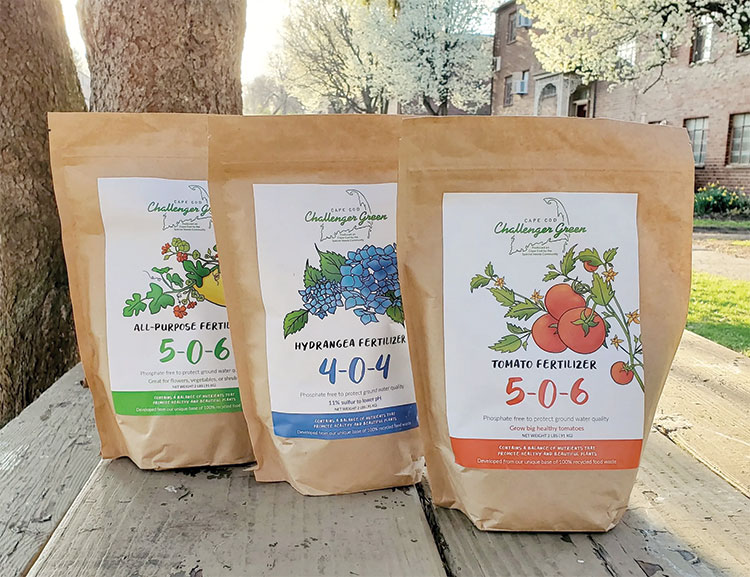
Using creativity and innovation, and using the ‘two heads are better than one’ theory, Challenger Club worked alongside Cape Cod Cooperative Extension, Chatham Bars Inn Farm and Hyannis Country Gardens and through trial and error, spun spinning straw into gold. Black gold, that is: a rich, organic fertilizer recipe for the Cape’s unofficial and much-loved flower, the hydrangea.
Todoroff and Kelvin Ing, the founder of the Challenger Club, landed on an oversized food dehydrating machine that could be re-purposed to process food waste into fertilizer—a critical need-based process Ing was very familiar with due to his Hawaiian roots where food waste is a crucial initiative.
“We thought we could check a few boxes by potentially creating jobs for adults with disabilities, recycling food waste, and possibly help the area schools since many Special Education departments at local high schools are often looking for vocational training opportunities for their students.” Of course, like with most great plans, things aren’t always that easy. “It took us probably about four years to achieve a really effective fertilizer,” he says of the new Cape Cod Challenger Green Fertilizer which comes in three varieties perfect for the New England gardening landscape. Today the project is a best seller, available throughout New England and New York, turning out 12,000 bags of fertilizer a year with a 50,000 bag capacity annually in its sights.
Those in Need
Summer of Sass
Kristen Becker is a contradiction in the most wonderful way. The stand-up comedian/producer turned activist for LGBTQ+ acceptance is an amalgamated personality, much like the marginalized youth she is committed to help. The Provincetown resident was born in Buffalo and raised in Shreveport, Louisiana and has often been described as a, “bawdy sense of reality, served with a slice of Southern charm.” A recent podcast, Welcome to Provincetown has highlighted Becker’s journey to provide a safe, and welcoming outlet for young LGBTQ+ individuals trying to find their way through adolescence.

An increasing hostile social reception nationally, after the 2020 presidential election, for anyone who was perceived as different set the stage for this laugh-generating powerhouse to get serious about some very real challenges. “It was right after the election, I heard about a boy who was bullied in Shreveport, where I went to high school, meanwhile, the Cape was suffering for a workforce shortage due to changes in visa policies, and suddenly it all seemed perfectly clear to me,” Becker explains. “Why don’t we just bring kids from our own country who need a safe space?”
Becker’s seemingly simple solution really wasn’t all that hard to put into action; especially since she was willing to provide the housing and oversight from her modest Provincetown rental for three kids. A GoFundMe campaign raised a few thousand dollars for travel expenses, but seasonal jobs found in town kept the dream afloat. Becker consciously defined her target individual between the ages of 18 and 20 deliberately since they were not yet old enough to drink alcohol and presumably would pursue college studies at the end of the summer. The underlying priority however, was to ensure these kids had a safe place full of acceptance for who they wanted to be.
Becker named her program Summer of Sass.
After five years, many would consider Becker’s mission to have been a success, but not this dynamic boundary bender. “I brought six of the kids back for the 5th anniversary fundraiser,” Becker recalls. “I mean it was the pandemic, I had been hustling for five years, it was an endless stream of fundraising, and mailing campaign for donations; it was a lot of work for a really small operation. So, I put it all out there. At the fundraiser, I said, ‘I don’t know how to be surrounded by all of this wealth in this area and work so hard for so little. My plan provides a solution for a workforce, plus an opportunity to help others better cope with the same things many of us had to endure.’ The six kids told their story, and I said, ‘These are the lives we’ve saved, and I’m going to stop doing that, if somebody doesn’t give me money to do this in a way that makes sense.’ And somebody said, ‘We would like to give you some money.’ It turns out that money was $3.7 million.”
Becker used the funds to purchase a historic five-bedroom, seven-bathroom inn in the heart of Provincetown. Now she is able to host several people who are struggling in less-accepting communities across the country, as they come to Provincetown where they can find work and community, all while exploring who they are truly meant to be.
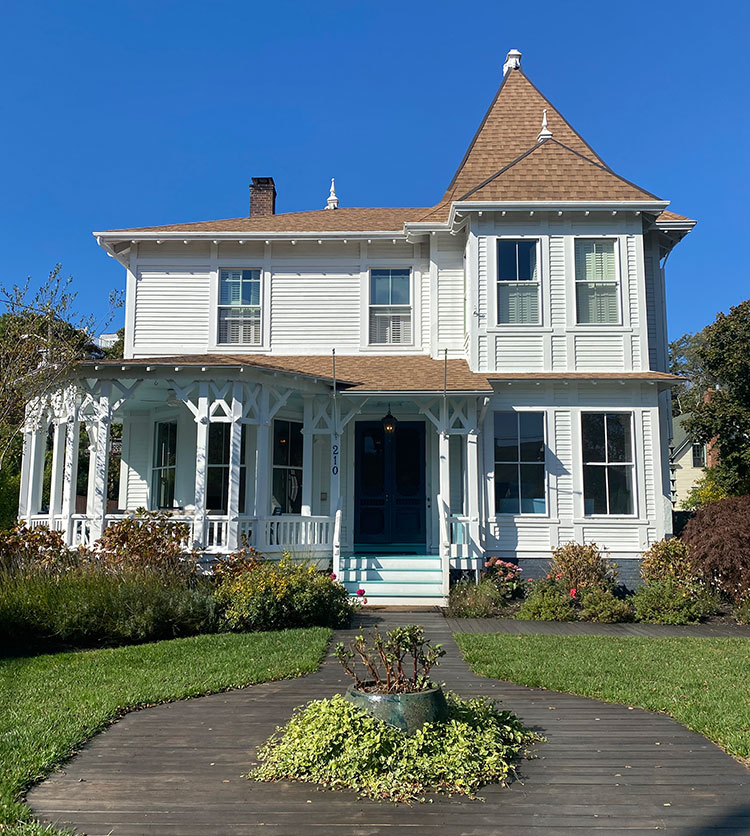
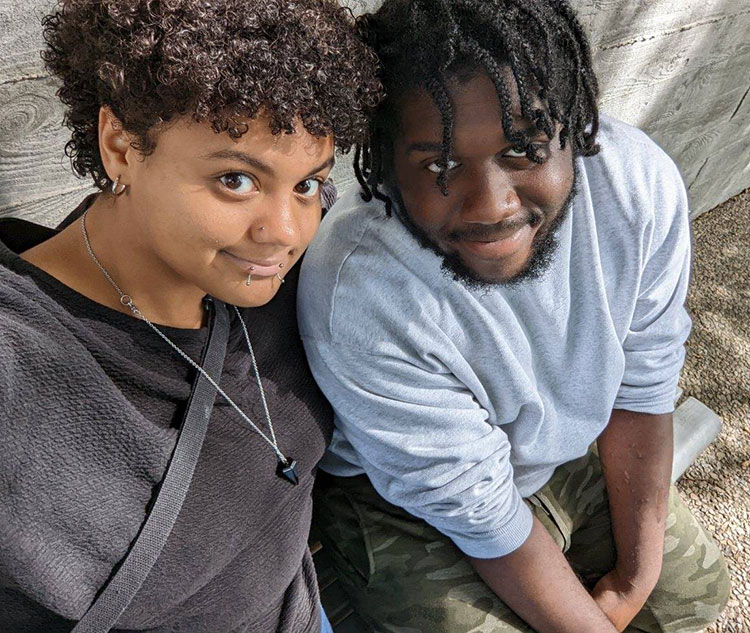
“There’s definitely a sense of community for this space; and ownership as well,” Becker confirms. “We are clear, ‘This is yours, for right now. And after you, it will be someone else like you.’” The sense of contribution and place in the world is what Becker says resonates with her “kids.”
“They know they have a safe space if they need it. If they don’t feel comfortable going home during school breaks, they are welcome to come here. They know someone is looking out for them, not judging them, and it is committed to a positive personal development at the core of their motivation. It is all out in the open,” Becker explains.
As far as what comes next, Becker says she needs to scale her fundraising efforts to be able to continue to provide the services and sanctuary she has worked so hard to create. “The money for the inn was great, we don’t have a mortgage. But it certainly doesn’t end there, we need to figure out the rest. One thing I know, it is the best thing I have ever done.”
Sometimes it pays off to ask for exactly what you need.
Cape Abilities
Lots and lots of smiles: that’s what you will notice the most at any Cape Abilities event, by glancing at their social media pages, or stopping by any of their social enterprises such as their thrift store, farm or market. For over 50 years, Cape Abilities has been providing services to thousands of individuals with a broad range of developmental and intellectual disabilities.
By educating, counseling and providing residential, therapeutic, social and employment supports, Cape Abilities programs empower individuals to achieve meaningful and valued roles in the community.
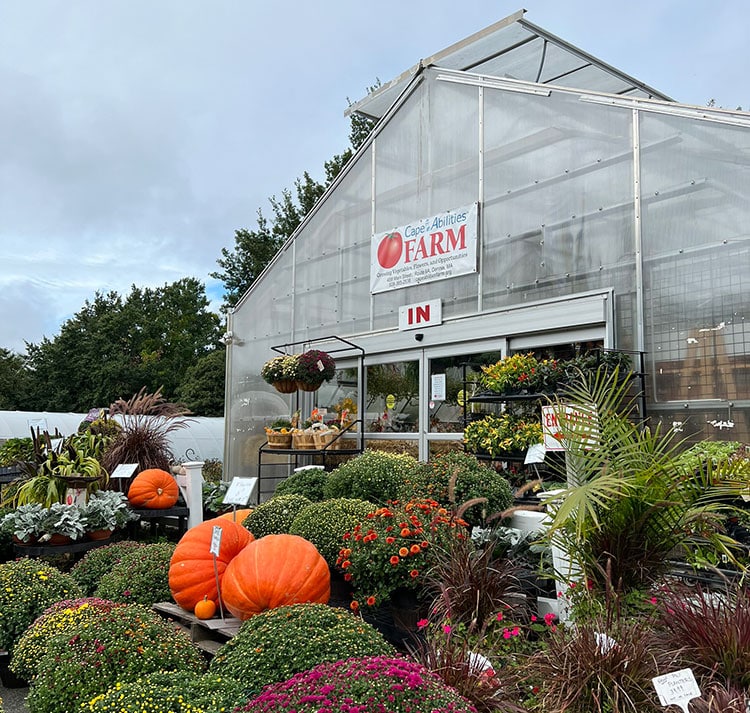
Their Community-Based Day Supports Program is responsible for many of those aforementioned smiles. This summer CBDS launched their Canal Challenge, aiming to walk more than 500 miles over the course of this past summer and early fall—the length of the entire canal. CBDS’s connection to the canal has deep roots. Members of the program have been volunteering with the US Army Corps of Engineers at the canal for over five years. Their work has been instrumental at the visitor’s center—planting gardens, weeding, and completing spring and fall cleanups have kept the exterior of the building welcoming and inviting to all visitors. Another enriching experience CBDS brings is in the form of trail rides at the Alliance Equestrian Center in Sandwich. Members of Individual Supports and Individuals in Day-Habilitation enjoy equine therapy programs where transformative bonds develop between the individual and the horse. Participants are actively involved in all aspects of the horses’ care, including grooming, leading, brushing, and, of course, riding.
Cape Abilities and their social enterprises act as opportunity hubs for job training, assessment, and placement and exist to provide employment and training for individuals of all abilities, promote awareness of their mission, and raise revenue for all Cape Abilities programs. Their Thrift Shop in West Yarmouth offers top-quality, secondhand home furnishings and clothing. You can find furniture, art, collectibles, dishes, books, movies, games and more. The Cape Abilities Farm, located in Dennis, offers organic and local food, flowers, gifts, art and more. You can also find them every Tuesday at the Chatham Farmer’s Market.
Consider joining the Cape Abilities community, no matter how much time, expertise or funding you can give will ultimately result in not only smiles, but a priceless sense of family and an inclusive circle of friends. You can fund their mission by donating your time or making a financial contribution by shopping local and visiting one of their businesses. 100% of the sales go to support their mission. To learn more visit capeabilities.org.
Sharing Kindness
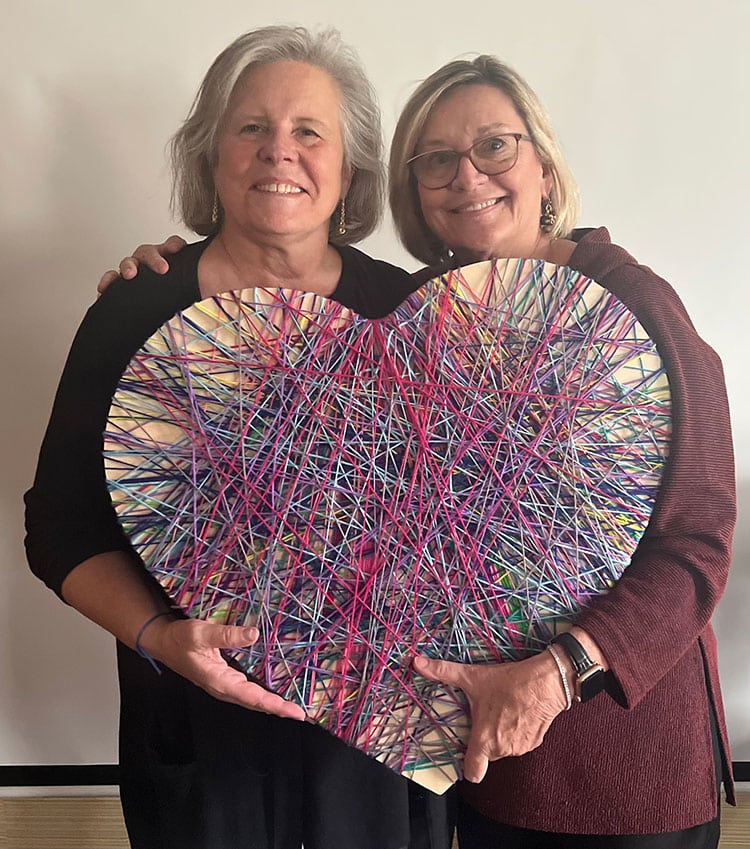
Grief and joy can coexist. The messy challenge of this concept, nearly impossible to believe for those deep in the throes of various struggles, is one Sharing Kindness is trying to help young people understand, specifically those living with the trauma of loss and grief.
Statistics from the Barnstable County Department of Human Services show that opioid-related deaths in the county are higher than those over the bridge. Data also shows that suicide statistics are double in size compared to similar demographics off Cape. Through statistical analysis, Sharing Kindness estimates there are thousands of bereaved children, teens and young adults on Cape Cod, fighting tremendously lonely battles without the help they need.
Dr. Kim Mead-Walters, co-founder of Sharing Kindness, points out that unattended grief puts children at risk for academic, social and public health problems. Adding to already high rates of loss on Cape Cod, health care officials are seeing the effects of pandemic related trauma among young people across the country. Children who are left without assistance processing their losses in healthy ways are at increased risk for mental health issues, suicide, and early mortality. Those experiencing significant losses between the ages of six and 18 face an elevated risk of later substance abuse.
Mead-Walters and her husband Davis Walters founded Sharing Kindness after their son Jeremy died from suicide in 2016. The couple learned firsthand that the Cape had few grief support services for young people, including Jeremy’s siblings and friends. The first Sharing Kindness Walk was held in Jeremy’s memory in 2017 and has become an annual event since.
“We were astounded to see hundreds of people come to walk and offer support,” Mead-Walters says. “Many were strangers who bravely shared their stories of loss with us.” She points out that over and over, they heard there was nowhere to go to understand their loss and get grief support. Sharing Kindness committed itself to help people find those resources, as well as create a center where young people could get the help they need. In recent years, Sharing Kindness has been working to educate the community and create changes in the ways people view grief, loss, brain health, and suicide.

The group, working with The Dougy Center Model (this peer grief support model is the nation’s gold standard) is training grief therapists and volunteer co-facilitators this fall. They will offer new peer grief support groups across the Cape in early 2023. They have worked with other nonprofits to support a broad spectrum of people across the Cape including Helping Our Women in Provincetown, the Alzheimer’s Family Support Center, Grandparents Raising Grandchildren, and Calmer Choice.
Requests for support and training have soared in the wake of the pandemic, Mead-Walters says, and fundraising efforts to create a center for the Cape’s young people, where support programs will offer peer grief support and tools for healing and wellness is a priority. As an example of what the center can provide, Mead-Walters described a grief group for young adults offered in Falmouth currently. “There have been many losses in the 18-to-25-year age group, losses through accidents, overdoses and homicide. We did a focus group and will be starting a six-week ‘Grief Tools’ group which will include drumming, yoga and mindfulness. When we have our own center, we’ll continue to offer these kinds of sessions, but with music and art therapy too.”
Independence House
For many, many years, Independence House has been an incredible, steady presence in the community, providing sanctuary, safety, education and advocacy for people on Cape Cod transitioning out of life circumstances in which they have been abused; physically, sexually, or mentally. It is a place of hope and help.
For the past several years, Independence House has worked to run a leased residence for survivors of domestic and sexual abuse, as well as accommodating their children. In September, the purchase of a permanent refuge was announced, in part, made possible by the donations of Lady Donna Kornberg, an attorney whose career focused on representing survivors; and Lauren Kanzer, who worked for years at Independence House. Having its own property will allow Independence House to offer options such as allowing families to bring their pets when they are in transition, a particular goal of Kornberg’s.
In addition to providing counseling, support groups and assistance to those transitioning to lives of safety and independence, Independence House has long been a voice of advocacy, helping the Cape community understand the very real truth about domestic abuse.
Independence House continues to fundraise to support the purchase of the residence and turn it into a bridge where people can move safely toward lives free from the effects of violence. Independence House has four offices, in Hyannis, Falmouth, Orleans, and Provincetown, and maintains a 24-hour-a-day hotline. The organization also provides support round-the-clock at Cape Cod and Falmouth Hospitals.
Independence House is always in need of volunteers. A description of various needs, and an application to help can be found at independencehouse.org. In addition to volunteering, a number of ways to donate financial assistance are outlined on their website.
Vineyard House
The folks at Vineyard House are always open to ideas from those who want to help support their work of overcoming addiction. Volunteers are the driving force that have helped make Vineyard House the success it is in helping the Martha’s Vineyard community members make their way back into healthy lives.
In addition to the support and energy of its volunteers, much of Vineyard House’s budget and work is funded by its annual Water Tasting by the Sea event. This year more than 500 people participated in the celebration held in Oak Bluffs, as they feasted on hors d’oeuvres, and sampled a variety of still and bubbly waters.
For 25 years Vineyard house has provided a haven for people who are in the early phase of recovering from substance abuse. Initially the organization operated a single home for men only, at a residence donated by a concerned community member, Vineyard House became a plural, with a new home for women. Today, the organization exists in a quiet, residential campus in Vineyard Haven, two men’s homes and a women’s house provides supportive group living with private and semi-private bedrooms, fully equipped kitchens, laundry services, and common areas.
While residents stay at Vineyard House, 12-step meetings and other programs are available to help people move toward overcoming addiction and recovering their health. Making the transition from more structured recovery programs into the rigors and stresses of independent daily living can be challenging, and Vineyard House offers a bridge which has been instrumental to so many.
Recognizing there is great need for the kinds of services offered at Vineyard House, the organization focuses its energies on island residents, who would otherwise have to travel away from family and community and wind up off island for similar support services.
For more information about ways to help go to vineyardhouse.org.
Art & Culture
Cape Cod Theatre Company/Harwich Junior Theatre
Back in 1951, Betty Bobp breathed life into her dream that people of all ages would have the opportunity to be involved in a theatrical experience, and Cape Cod hasn’t been the same since. From set and costume designers, playwrights, prop makers, actors and directors, thousands have become part of Betty’s extended family, one that is rich with creativity and collaboration.

With a budget of just $100, Betty and a small but dedicated group of volunteers produced three shows that first summer. Betty made the costumes, taught the students, built the sets and directed the shows. From these small roots they began to acquire a following of like-minded theater lovers and the organization began to grow and thrive. In the 60s the theater company had to relocate as the building they occupied was slated for demolition; Betty and her loyal crew of creatives moved and have been on Division Street in West Harwich, the current location, ever since. Key renovations took place in the 80s, adding a rear two story addition, a deck and other indoor changes, thus ensuring the building and its talented inhabitants would be a year round destination for live theater and arts education. Betty continued as an integral part of the organization well into the 1990s while Nina Schuessler was brought on as the first full time, year round producing artistic director. Betty passed away in 1997, just a few years shy of seeing her labor of love celebrate its 50th anniversary. The show must go on of course and today, the legacy continues with Nina at the helm. Under her direction the nonprofit continues to grow and continue with the mission of bringing theater and the arts to everyone.
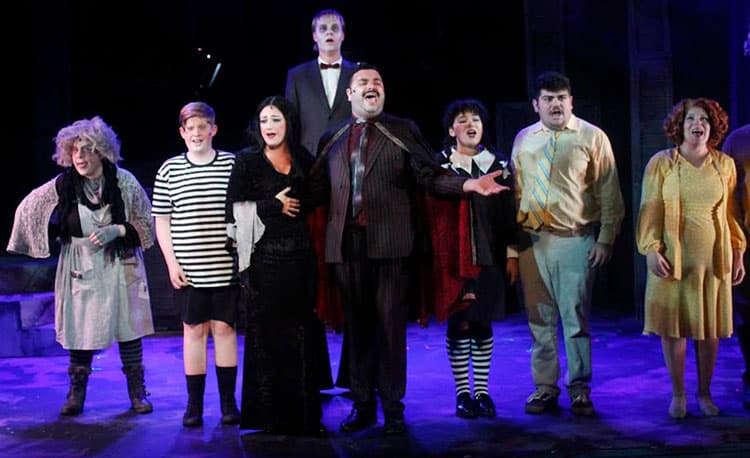
One of the greatest and most significant changes happened in 2006 when the organization signed a contract with the Town of Harwich to lease a building now known as The Arts Center. Acquiring the building gives them the much needed classroom space to hold events that range from classes to experimental theater or open mic coffee houses. In the summer of 2015 the organization grew once more, changing its name to the Cape Cod Theatre Company/Harwich Junior Theatre. The name reflects the growth and changes it has been through while still paying homage to Betty’s original venture. Once a small seasonal theater, it has evolved to a year round creative force, educating and entertaining while adding to its family year after year.
To learn more about this amazing venue and its upcoming shows and events as well as their fundraising efforts, go to their website capecodtheatrecompany.org.
African American Heritage Trail
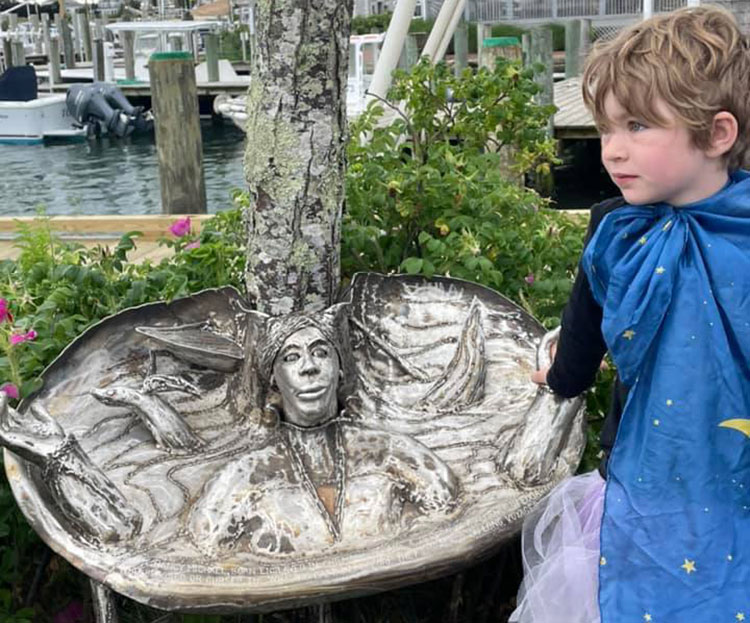
As the African American Heritage Trail of Martha’s Vineyard approaches its 25th anniversary, co-founder Elaine Cawley Weintraub reflects on the original mission that she and Carrie Camillo Tankard set forth on. A teacher, Weintraub realized that island libraries and bookstores had plentiful options on local topics ranging from recipes to gardening tips but found nothing on the history of African Americans who had lived on the island for hundreds of years. “I knew I had to make it happen,” Weintraub said. Her students needed “affirmation and confirmation, so with an introduction from a mutual friend, Weintraub and Tankard, the vice president of the island’s chapter of the NAACP and a community champion for diversity and equality, set out on a journey to research, educate and celebrate the contributions of people of color. As they uncover people and places of history, they dedicate the site with a bronze plaque. “In the beginning,” Weintraub says, “we were excited to have four.” As of this summer, the trail boasts 36 sites and a crowning jewel is the stainless steel statue by island artist Barney Zeitz of Nancy Michael, an enslaved woman who gave good or bad luck to sailors headed out on long whaling voyages. It has a prominent and most fitting position at Memorial Wharf in Edgartown Harbor. Their work continues in Martha’s Vineyard schools as they “reach out to the future,” Weintraub says. There are scholarships given to local students who have exhibited inclusivity and have made the community a kinder place.
For more information on their work and how to donate (a wish list item includes a van so that more island tours can continue) please visit their site mvafricanamericanheritagetrail.org.
Maria Mitchell Association

On a crisp, clear night in October of 1847, Maria Mitchell of Nantucket stood on her rooftop armed with her telescope and spied a telescopic comet, a discovery which thrust her into the international spotlight as the first female American professional astronomer. Maria had a love for learning and was educated in her local schools as well as by her father who tutored her in astronomy, math, surveying and navigation. By the age of 14, she had earned a reputation so trustworthy that Nantucket sailors would often turn to Maria to rate their chronometers before their long whaling journeys. After discovering the comet, Maria traveled throughout the United States and Europe and eventually became a Professor of Astronomy at Vassar College. She believed in “learning by doing” and that women could achieve the same goals as men. The Maria Mitchell Association was founded in 1902 in order to preserve the legacy of the Nantucket native. Today the staff, made up of astronomers, scientists, and professors operates two observatories, an aquarium, a research center and maintains the historic birthplace of the association’s namesake. Throughout the year numerous science and history related programs are offered for all ages, touching upon everything from stargazing opportunities, after school events to birthday parties.
To read more about Maria Mitchell as well as the Association’s fundraising efforts, visit their website at mariamitchell.org.
Strength in Numbers
Community Foundation for Nantucket
Like so many other places across the Cape and Islands, Nantucket’s challenges can be hidden by summer’s sunny skies and beautiful beach days. But year-rounders face a host of issues with which the Community Foundation for Nantucket has steadily and consistently been helping since it was founded in 2005. The robust nonprofit has helped organizations and individuals in need, and it also has been guiding others in the community who want to find and develop ways to have their own positive impact.
Over the past year, the Community Foundation awarded the most it ever has in its 17-year existence. Health care services, food delivery for seniors and children, trauma treatment, shelter for animals, sailing classes for youngsters, art classes for residents, affordable housing—nary a corner of community life on Nantucket hasn’t been touched and enriched by the Community Foundation.
More than $1.9 million in funding has been awarded to island groups that help create Nantucket’s rich year-round community. While various organizations target very specific needs, the Community Foundation, as the name implies, takes a broad approach, supporting multiple facets of island life with the aim of enhancing the overall well-being of the people who live there. To that end, grants fund social, physical, cultural, economic and environmental endeavors.
Through the Foundation, a number of opportunities for giving and receiving exist. The Nantucket Fund targets those most in need on the island, focusing mainly on housing, social and emotional health, and food security. The Foundation believes in a Nantucket where everyone, “has a place to call home, has support when coping with personal struggles, knows their children are safe…during the workday, can rely on year-round affordable transportation, and may age gracefully with trust in the services they need and deserve.”
For those who have the means to create their own fund, the Foundation, in the capacity as a public charity, offers donors the maximum tax benefits allowed by law. It can help donors navigate the process of selecting a means of giving. Nearly 30 community funds created by families with deep connections to the island offer opportunities for targeted giving. A sampling of these include the Nantucket Wheelers, funding electric assist wheelchair bikes giving disabled residents and visitors the opportunity to bike on the island; the Gary DaSilva Fund created in memory of Gary DaSilva, an avid golfer, to benefit the Nantucket High School Golf Team, or the Edith Andrews Fund for Natural History and Ecology.
The Foundation manages an array of scholarship funds that create educational opportunities for Nantucket High School students. Some scholarships were created for students pursuing education in specific fields, such as culinary arts, fiber arts, and theater. There are other scholarships for students who hope to study math and science, agriculture, or careers that enrich the lives of children.
Keeping a unique place like Nantucket vitally sustained is critical to the future of the small island’s year-round community which is the backbone of the idyllic destination. The Community Foundation is dedicated to support the island’s residents in as many ways as necessary.
Annual Charter Cup Fishing Tournament
Founded in 2017, by local builder E.J. Jaxtimer, the Annual Charter Cup Fishing Tournament works in partnership with local businesses to raise funds for nonprofits working to better the Cape and Islands community. This year, thanks to the tournament’s participants, the 6th Annual Charter Cup Fishing Tournament was able to raise $413,000 for 18 local nonprofits—that’s a pretty good day of fishing and fun!
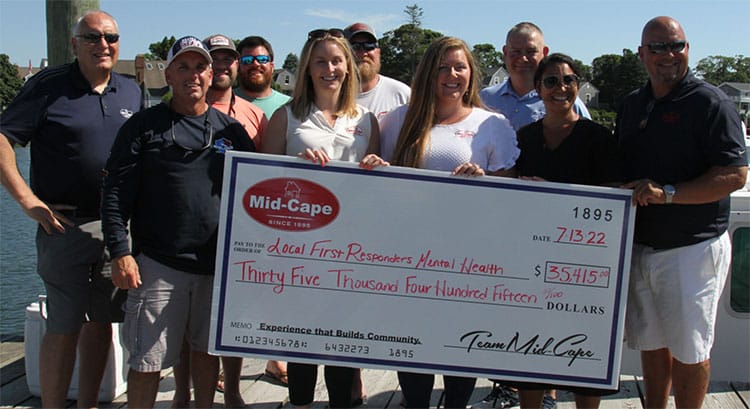
After a day’s catch, participants loaded their fish onto the weigh-in station where certification of the heaviest Bluefish was to be awarded to the Joslin Diabetes Center and the heaviest Striped Bass to Duffy Health Center.
All proceeds raised from the tournament went directly to benefit a variety of important nonprofits whose work supports the Cape and Islands community. Angel Flight NE, Barnstable Police K9 Foundation, Big Brothers Big Sisters of Cape Cod, Cape Abilities, Duffy Health Center, Habitat for Humanity Cape Cod, Housing Assistance Corp. (HAC), Joslin Diabetes Center, Local First Responders Mental Health Awareness & Support Initiative, May Institute, WellStrong, Yarmouth Police Foundation, and YMCA of Cape Cod. A unique and robust live auction hosted after the tournament raised funds to benefit A Baby Center, Cape Kid Meals, The Family Pantry of Cape Cod, Sharing Kindness, Tommy’s Place and Yarmouth Food Pantry.
This year marks a milestone for the tournament as over $1 million dollars has been raised and donated over the last six years thanks to the dedication of the Cape and Islands community.
2022 tournament participants and their chosen beneficiaries:
Angel Flight supported by Andy Reardon and Ra Villani, Inc.
Barnstable Police K9 Foundation supported by Tavano Mechanical Systems and Cape Dairy, LLC
Big Brothers Big Sisters of Cape Cod & the Islands supported by the Barnstable Police Department
Cape Abilities supported by Jaxtimer Landscaping, LLC
Local First Responders Mental Health Awareness & Support Initiative supported by Mid-Cape Home Centers and Christian Davenport
Duffy Health Center supported by Wendy’s and Captain Jeff Perry – First Light Fishing Charters
Habitat for Humanity of Cape Cod supported by Shepley Wood Products
HAC Cape Cod supported by Coastal Medical Transportation Services LLC. and The Maffei Companies
Joslin Diabetes Center supported by E.J. Jaxtimer Builder, Inc.
May Institute supported by Carl F. Riedell & Sons, Inc. and Stray Cat Sportfishing
WellStrong supported by Bay Colony Concrete Forms, Inc., Gibson Waterproofing and Ty One On Sportfishing
Yarmouth Police Foundation supported by Baxter’s Fish ‘N Chips and Emma Jack Charters
YMCA of Cape Cod supported by Joyce Landscaping, Inc. and AeroCape Aviation
To learn more about the annual tournament, visit jaxtimer.com/chartercupfishingtournament.
Community Health Care of Cape Cod
When it comes to options for your healthcare on Cape Cod, it may seem they are limited. Community Health Care of Cape Cod (CHC) exists to change that. They define themselves as a complete medical home which offers primary care and behavioral health care, as well as women’s health services. Yet they also provide dental care, optometry, substance use disorder services, on-site affordable prescriptions, x-ray and ultrasound services, and many other specialized programs, including Veterans Care. Add to that their sliding scale payment policy based upon income and family size and the organization appears to check all the boxes currently being examined in many public (and private) debates.
Healthcare today is a major source of time, investment and many times frustration. Cape Codders have an option such as CHC, which provides a beacon of hope and a path of confidence for the Cape’s unique population.
As a Patient-Centered Medical Home (PCMH), they have been recognized by the National Committee for Quality Assurance, a private, nonprofit organization dedicated to improving health care quality.
Benefits of being a PCMH are a consistent primary care provider and a team of health care professionals. CHC is also committed to coordinated and integrated care that always has the patient actively involved. Their focus is on quality care, patient satisfaction and safety.
CHC is accepting new patients and has locations in Mashpee, Falmouth, Sandwich, Bourne and Centerville. To learn more about the care CHC can offer you and your family, or to see how you can support their mission, visit chcofcapecod.org.



